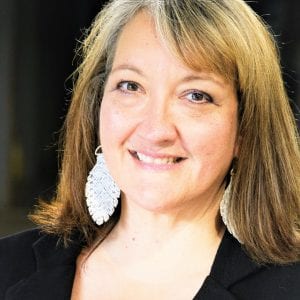By Mark G. Auerbach
The beleaguered Springfield Symphony Orchestra made headlines, as their out-of-work musicians took to the streets on June 12, to make the public aware of the SSO’s precarious situation.
According to the musicians, who have not performed on the stage of Springfield Symphony Hall since March, 2020, no program has been announced for 2021-22. Maestro Kevin Rhodes’ agreement with the SSO lapsed on May 31. The SSO’s executive director resigned in April, and although the development director has stepped up as interim director, there has been no search underway to replace that position. And, the SSO and the musicians were in the middle of contract negotiations, which ended last Spring. The musicians also contend that some valuable Board members have resigned. The Board has responded that they cannot schedule a season, renew a music director’s contract or essentially do anything until an agreement is reached with the musicians. But, the musicians will continue to perform and negotiate. It’s to their benefit that the SSO continue.
The current crisis at the Springfield Symphony didn’t happen overnight. It has been brewing for years. From the vantage point of an arts reporter trained in arts administration; as a public relations and marketing consultant with arts clients for three decades, and as an alum of the SSO staff (I was their marketing and public relations director from 1982-85), I’m not surprised.
Orchestras and other performing arts organizations around the country have faced challenges for years. Government arts support has been diminished. Audiences have aged. There are less individual philanthropists who can write big checks to maintain arts groups. Priorities have shifted. Just look at Springfield. When I came to town to work at the SSO, there was a professional theatre downtown (StageWest), and Symphony Hall, aside from the SSO, hosted touring Broadway shows and other entertainment. And the SSO had pairs of classical concerts, not singles, a robust pops series, and more at Symphony Hall, plus a popular summer pops at Stanley Park in Westfield.
As the market changed, the SSO downsized. As banks merged and Boston leaders were making philanthropic decisions for Western Massachusetts, Springfield’s arts took second place. As the arts boards aged, no younger corporate leaders emerged as successors.
The SSO’s artistic product is stellar. The musicians are the best around, and many live here year round, working in the area colleges and at nearby orchestras, when not on stage at Symphony Hall. Maestro Kevin Rhodes is a world-class conductor, in demand at opera houses and ballet companies around the world.
But the board and management couldn’t keep up. When Executive Director Michael Jonnes retired in 2012, the Board sought to find an experienced executive director, who came and left midway through her contract. Her role was filled by a well-intentioned, yet inexperienced in arts administration board member, who was replaced by a development professional with no arts leadership credentials, and then by another. Without experienced leadership, the SSO was unable to ride the rapids of recession and instability, or to build a blueprint for the future.
The SSO has been saddled by mediocre marketing and audience development, led by a series of inexperienced arts marketing people, who could not stabilize the diminishing audience nor attract new ones. And, the Board could not attract fresh faces. Some of the decision makers have been there for decades. Where are the fresh faces with new contacts and new connections?
The pandemic kicked the wind from the sails. The SSO that remains has a small 9-member executive board, an acting executive director, and a small staff. There have only been a handful of virtual events that pale in quantity with other area professional and nonprofessional arts groups. The board appears to be treading water, although the SSO has a healthy endowment and recently completed a successful fundraising season.
A regional business funded a strategic plan for the SSO, which was built by a local but nationally renowned company that specializes in plans for non-profits. Members of the board, administration, musicians and the community were involved in the process. I’ve seen the plan. It’s do-able. It could save the SSO.
But, the SSO will fail, without immediate new leadership on the Board and executive leadership with experience. It’s a challenge. And, hopefully, the city of Springfield, the regional corporate community, and individuals will support the SSO. Because, if Springfield wants to compete with other regional centers like Hartford, Worcester, or even Pittsfield, it must have a vibrant cultural portfolio. Without it, people will choose to live and work elsewhere.
Kudos to the musicians of the Springfield Symphony Orchestra, who are calling attention to the plight of the SSO, and showing their willingness to help stabilize the organization. I hope the community rises to the occasion as well.
Mark G. Auerbach studied theatre at American University and The Yale School of Drama. He has worked for arts organizations nationwide, and reported on the arts for print and broadcast. Mark produces and hosts ArtsBeat, Athenaeum Spotlight and On The Mark for WCPC15 and 89.5fm/WSKB. He’s a regular contributor to Pioneer Valley Radio and a member of the Berkshire Theatre Critics Association.







